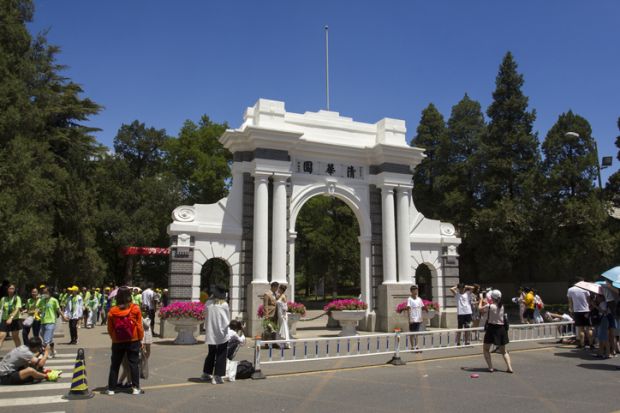A lack of access to technology, unprepared teachers and faculty, and ethical concerns are among the challenges facing the implementation of online education worldwide, according to Unesco’s assistant director-general for education.
About 40 per cent of students do not have access to the Internet, Stefania Giannini warned. Unesco reported in March that about half of the world’s student population was not attending physical classes.
“Global cooperation is the only answer to this crisis – especially to support countries that don't have the capacity to know how, or have the resources to deploy, distance learning,” Ms Giannini added during a dialogue on online education and the pandemic co-hosted by Tsinghua University.
She hoped that the online dialogue, which included about 30 panellists from 21 institutions in 15 countries, would “pave the way for a new cooperation between universities”.
Stephen Toope, vice chancellor of the University of Cambridge, added that “we will only learn enough to make progress on the immense challenges of online education through collaboration at a global level.”
Qiu Yong, Tsinghua’s president, called 2020 a “historical watershed” that will witness “the rise of online education at an unprecedented scale.”
For now, the fate of campus reopenings hangs in the balance, as the number of Covid-19 infections tops three million worldwide.
“While the end of the pandemic remains out of sight, it is our unwavering belief that we will overcome it eventually,” Professor Qiu said. “It is foreseeable that the form of campus-based education will be profoundly reshaped after the pandemic.”
Tsinghua was among the many Chinese and Hong Kong universities that moved their teaching to online platforms earlier this year. Tsinghua's Institute of Education has summarised some of its experiences in an interim report, “Integrity, Resilience and Reform: Evaluation and Implications of Tsinghua University’s Emergency Online Education”.
“We share a common belief that education should not be interrupted under any circumstances,” Professor Qiu said. “It is our compelling obligation to ensure the continuation of education.”
“We are encouraged by facts and expertise,” said Peter Salovey, Yale University’s president. “And yet we are humbled by the questions that remain unanswered.”
“The pandemic has shown the world how much we need ideas and solutions,” he continued. “And it has reminded me and many of us why the research and scholarship being conducted on college and university campuses in China and the United States and other nations throughout the world are so vital to society.”
Register to continue
Why register?
- Registration is free and only takes a moment
- Once registered, you can read 3 articles a month
- Sign up for our newsletter
Subscribe
Or subscribe for unlimited access to:
- Unlimited access to news, views, insights & reviews
- Digital editions
- Digital access to THE’s university and college rankings analysis
Already registered or a current subscriber?








